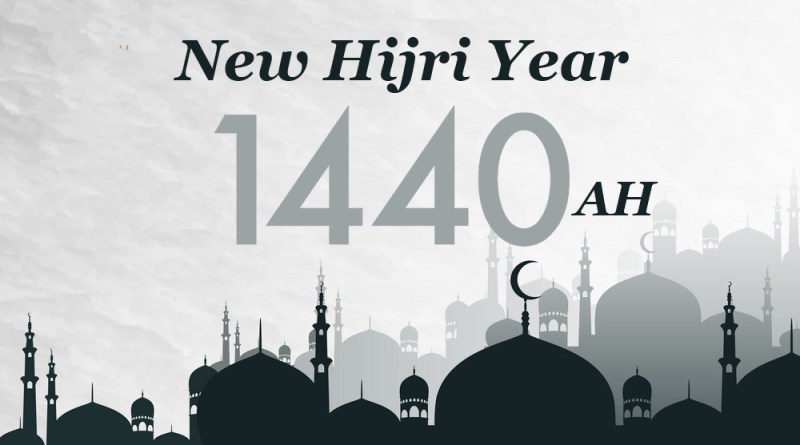Today Tuesday September 11, 2018 marks the Islamic New Year 1440 A.H. (after Hijra) which is the first day of Muharram, the first month in the lunar Islamic calendar.
The word Muharram means “forbidden” and many Muslims fast during this period. The Muslim calendar and times are calculated based on sightings of the crescent moon, creating a calendar that is entirely lunar in its system. It consists of 354 or 355 days annually and each year the holiday falls on a different day because the Islamic calendar is 10 to12 days shorter than the western Solar Calendar. Therefore the days of the Muslim calendar can vary dramatically in comparison to the days of the Gregorian calendar, and also vary by season.
Though it is not regarded as significant as other holidays like Eid ul-Adha and Eid ul-Fitr, the Islamic New Year marks the day that Prophet Muhammad established the first Islamic state in the city of Medina (formerly called Yathrib). Prophet Muhammad migrated from Mecca to Medina in 622 A.D., an event that is now referred to as the Hijrah and signifies the start of the Muslim calendar.
Because the month of Muharram is considered sacred, some Muslims voluntarily fast, even though fasting is not mandatory but optional especially on the tenth day of Muharram, which is known as Ashura. This day is thought to be when Nuh, or Noah, left the Ark and Musa (Moses) was saved from the Pharaoh of Egypt by God. It is also one of the four months of the Muslim calendar in which fighting is not permitted.
The New Year represents a period for new beginning and an opportunity for self-reflection. It is celebrated relatively quietly, with prayers and readings of the Holy Qur’an and reflection.
The New Year 1440 AH should remind Muslims of the sacrifices made by the first Muslims and should prepare them to do the same. The use of the Hijri Calendar for acts of worship and as a frame of reference to major historical events will help Muslims keep links with their roots and further enhance their knowledge of their religion and history.
The beginning of the Islamic Calendar also heralds a turning point in the history of Islam and is a time to reflect on the revolution and complete transformation of society through a unique brotherhood.
The new 1438 AH is one of the distinct hallmarks of Islam that differentiates Muslims from other communities and the foundation of many acts of worship such as Zakah, Fasting and Hajj which revolve around this calendar.
It is an opportunity to reflect on the past year and be thankful for a new dawn, a time to look forward to new beginnings and to seek greater closeness to Allah by striving to embody our own humanity through consciousness of Allah and service to others.
Undoubtedly, there is a greater need for Muslims to continue to imbibe the principles and tenets of Islam as a complete way of life, and re-dedicate and reaffirm their religious worship and cultural heritage by using the Islamic Calendar on a regular basis and not just during other Islamic celebrations.
We congratulate Muslims faithful for witnessing the New Year and urge them to reflect on their deeds and activities during the past year and also to use the occasion to offer prayers for peace and prosperity of the country. Happy New Islamic Year.

 Join Daily Trust WhatsApp Community For Quick Access To News and Happenings Around You.
Join Daily Trust WhatsApp Community For Quick Access To News and Happenings Around You.


